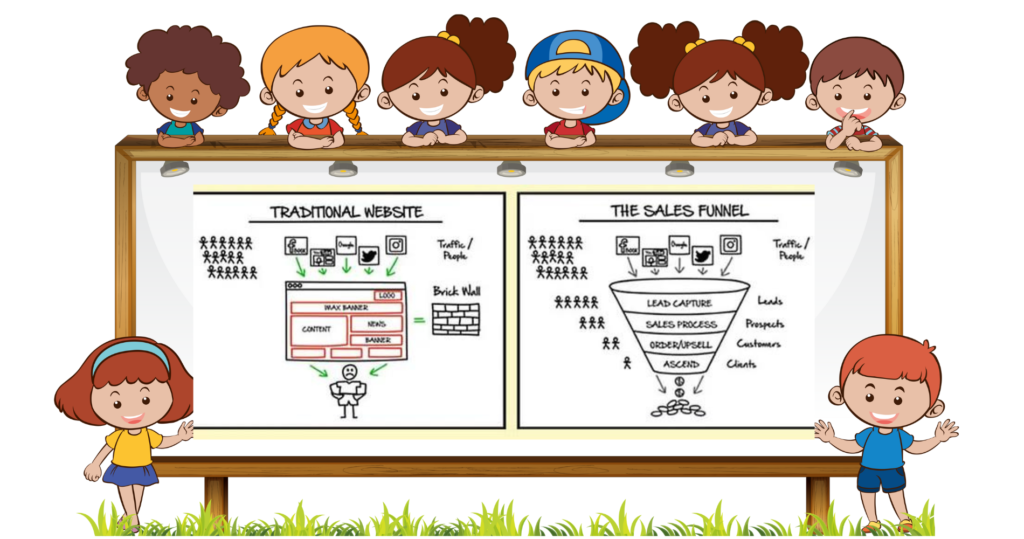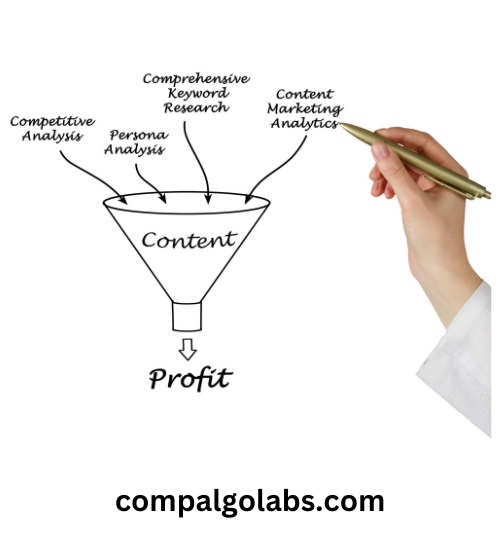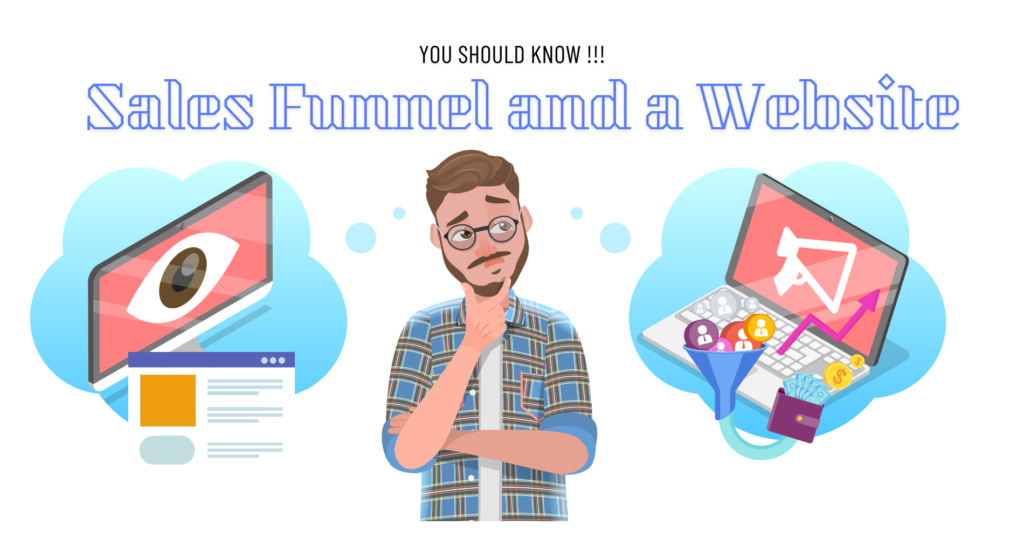In today’s digital world, having a strong online presence is crucial for the success of any business. However, many businesses struggle with understanding the difference between a sales funnel and a website. While both are essential elements of a successful online strategy, they serve different purposes and play distinct roles in the customer journey.
Understanding the Difference Between a Sales Funnel and a Website
In the rapidly evolving digital landscape, businesses are constantly seeking strategies to enhance their online presence and drive sales. Amidst this pursuit, the concepts of a sales funnel and a website frequently surface. However, a significant number of business owners and entrepreneurs find themselves tangled in confusion, unable to distinguish between the two. This ambiguity, if left unaddressed, can lead to inefficient online strategies and missed opportunities. Understanding the distinct roles and functionalities of a sales funnel and a website is paramount for the prosperity of any business in the digital realm.
Introduction to Sales Funnels and Websites
Before delving into the nuances, it’s crucial to define and understand what each term represents in the context of business and marketing.
Definition and Purpose of a Sales Funnel:
A sales funnel is a strategic marketing model that outlines the journey a potential customer undergoes from their first interaction with your brand to the point of making a purchase. The analogy of a funnel is used because at each stage of this journey, the number of potential customers decreases as they move closer to the decision of buying, thus narrowing down like a funnel. The stages of a sales funnel can be broken down as follows:
- Awareness: The stage where potential customers become aware of your product or service.
- Interest: At this point, customers show interest by seeking more information.
- Decision: The stage where comparisons and decisions are made.
- Action: Finally, the customer makes a purchase decision.

Visualizing the sales funnel involves creating diagrams or infographics that represent these stages, helping businesses strategize on how to nurture potential customers at each step effectively.
Definition and Purpose of a Website:
In contrast, a website serves as the digital storefront of your business. It’s the central hub for your online identity, where potential and existing customers can learn about your company, explore your products or services, and engage with your content. A robust website integrates several key elements:
- Design: The aesthetic and navigational structure.
- Content: The information, resources, and value provided to visitors.
- Functionality: The interactive features that facilitate actions like inquiries, purchases, or sign-ups.
Delineating Sales Funnels from Websites
While both a sales funnel and a website are instrumental to a business’s online success, understanding their differences is crucial:
- A website encompasses a broader scope, offering a variety of content and functionalities aimed at engaging and informing visitors without a singular focus.
- A sales funnel is a more targeted approach, crafted to steer potential customers through a series of specific actions leading to a purchase.
For instance, while your website might host an informative blog and showcase your product catalog, your sales funnel could specifically target leads generated from a marketing campaign, guiding them towards purchasing with tailored messaging and offers.
The Synergy between Websites and Sales Funnels
A well-constructed website is indispensable for supporting and enhancing the efficacy of a sales funnel by:
- Creating dedicated landing pages that serve as entry points for different stages of the funnel.
- Incorporating clear and compelling call-to-actions (CTAs) that prompt visitors towards the next step in their customer journey.
- Employing lead capture forms to gather essential information, facilitating personalized follow-ups.
Thus, a synergistic relationship exists where a dynamic website forms the foundation that hosts and amplifies the sales funnel strategy.
Implementing a Sales Funnel within Your Website
Integrating a sales funnel into your website involves a strategic blend of marketing tools and techniques:
- Email Marketing: Essential for nurturing leads by delivering targeted content and offers directly to their inbox.
- Retargeting: A technique to re-engage visitors who have interacted with your site but have not converted.
- A/B Testing: Critical for optimizing the sales funnel by testing various elements like page layouts, CTAs, and content to determine what yields the best results.
Regular analysis and refinement based on performance metrics are key to evolving and maintaining an effective sales funnel.
Conclusion: The Path to Digital Success

The distinction between a sales funnel and a website, though subtle, is significant. A website presents the broad spectrum of your business online, serving various purposes from information dissemination to customer engagement. In contrast, a sales funnel is a precision tool, finely tuned to guide potential customers through the decision-making process leading to a purchase. Understanding and leveraging both aspects in harmony can significantly amplify a business’s online presence and sales performance.
In the digital age, where competition is fierce and attention spans are short, mastering the art of guiding potential customers efficiently through the buying process is more important than ever. Businesses that invest in both a well-designed, informative website and a strategically crafted sales funnel stand to gain a competitive edge, turning visitors into customers and prospects into loyal fans. It’s not just about having an online presence; it’s about making that presence work diligently towards achieving your business goals.
If you enjoyed this article then please take a sec to comment and share it.
You can check out our other blogpost on compalgolabs.com/blogspot/
You can also connect with us officils page on Instagram.
Want to build your own sales funnel CLICK HERE!!!
Looking to streamline your online business operations? Look no further than System.io. With its intuitive platform, System.io offers a comprehensive suite of tools to help you manage everything from sales funnels to email marketing campaigns effortlessly. Whether you’re a seasoned entrepreneur or just starting out, System.io empowers you to scale your business with ease. Plus, with its affiliate program, you can earn commissions by referring others to this powerful platform. Take your business to the next level with System.io today!
**If you decide to buy something via a link in this article, it’s likely that I have an affiliate connection with the company selling the product or service. This means I may receive compensation, though it won’t cost you anything extra.**




